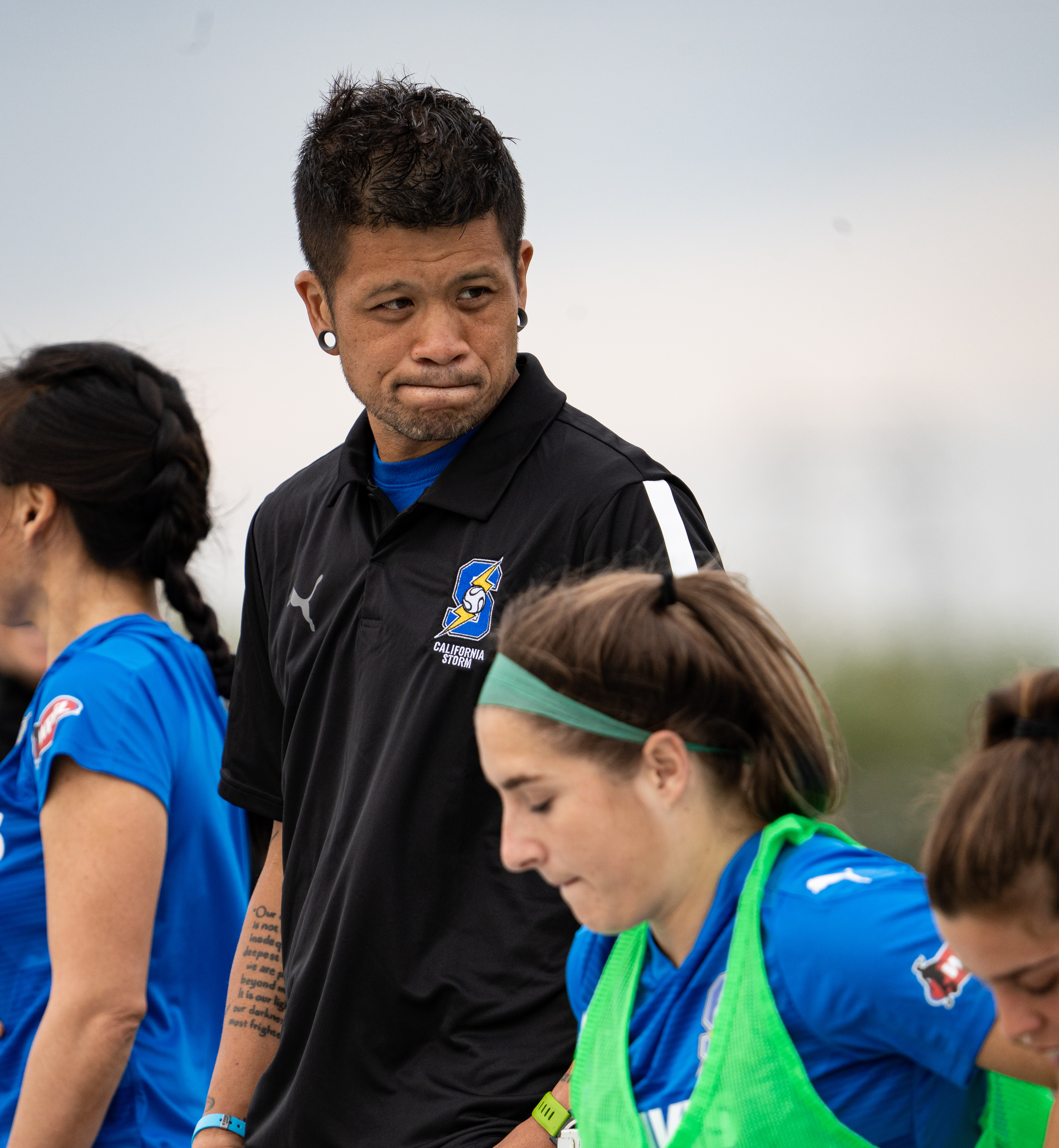- 865 Allian865 Alliance
- AAFCAAFC Lumberjills
- AcademicaAcademica Soccer Club
- AGCFAGC Football
- AHFCRAHFC Royals
- AHFCAHFC Royals Women
- AFCAlabama FC
- ARAlbany Rush
- ASDALBION San Diego
- AFCAlbuquerque FC
- ARAlexandria Reds
- ACSAlta California Sol
- ACAmbassadors Cleveland
- Arizona ArArizona Arsenal Soccer Club
- ASBArlington Soccer Blue
- ASRArlington Soccer Red
- ACSCAsheville City SC
- ASCAthena Soccer Club
- Atlanta FiAtlanta Fire United
- ACFCAtomic City FC
- AustinRiseAustin Rise FC
- BatCo FCBat Country FC
- BRUBaton Rouge United
- BUSCBavarian United SC
- BASBay Area Surf
- BCUBC United
- BFCBeach Futbol Club
- BeadlingSCBeadling Soccer Club
- BRSCBluffton Rush SC
- BCUBoulder County United
- BSCBreakaway SC
- BrooklynBrooklyn City F.C.
- BBBroomfield Burn
- BRSCBRSC United
- CSCalifornia Storm
- CCCCape Coral Cyclones
- CFCCarolina FC
- CIUCentral Illinois United
- CUCentury United
- Red DevilsChallenge Red Devils
- CFCharleston Fleet FC
- CDACharlotte Development Academy
- CECharlotte Eagles
- CFCChattanooga FC
- CRWChattanooga Red Wolves SC
- CCSCChicago City SC
- CDLChicago Dutch Lions FC
- CH ACChicago House AC
- CK FCChicago KICS Football Club
- CRSRChicago Red Stars Reserves
- CRU23Chicago Rush U23
- CSFCCincinnati Sirens FC
- SSCCity SC
- CSC UtahCity SC Utah
- CSCClarkstown Soccer Club
- CE SAClassics Elite SA
- CKFCClermont Kicks FC
- CACleveland Ambassadors
- BlizzardColorado Blizzard FC
- CPColorado Pride
- CRWColorado Rapids Women
- CRColorado Rush
- CEFCColumbus Eagles FC
- CFC SACorinthians FC of San Antonio
- CorktownCorktown WFC
- CJCroatia Juniors
- CUFCCultures United Football Club
- DCFCDade County Football Club
- DFFCDakota Fusion FC
- DDLDayton Dutch Lions FC
- DECATURDECATUR FC
- DODelaware Ospreys
- DMMWDes Moines Menace Women
- DDFCDesert Dreams F.C.
- DVWDiablo Valley Wolves
- DKSCDKSC BADTOP
- DU SCDowntown United Soccer Club
- EFCEastside FC
- EDAIIEDA II
- EPSEl Paso Surf
- EDAElite Development Academy
- EFEmerald Force
- EREmpire Revs
- Erie FCErie FC
- ETFCAEugene Timbers FC Azul
- FCAFC Arizona
- FCBFC Berlin
- FCB WomenFC Birmingham
- FCDWFC Dallas Women
- FCDFC Davis
- FC DFC Dayton
- FCGSFC Golden State
- MTFC Milwaukee Torrent
- FCMFC Monmouth
- N WolvesFC Nashville Wolves
- FCOFC Omega
- FPWFC Premier
- FCPFC Pride
- FCPFC PrimeTime
- SpiritFC Spirit
- FCSFC Surge
- FCTWFC Tucson
- FCTFC Tucson
- FC UnitedFC United Cedar Rapids
- FCWFC Wichita
- FSCFever SC
- FIFire & Ice SC
- FSC98Fire SC 98
- FlatironsFlatirons Rush
- FESAFlorida Elite Soccer Academy
- FGCDLFCFlorida Gulf Coast Dutch Lions FC
- FKFlorida Krush
- FPF.C.Florida Premier F.C.
- FPFCFlorida Premier FC
- FRFlorida Roots
- FTSCFlorida Tropics SC
- FFCForce FC New York
- FWVFort Worth Vaqueras
- FSAFox Soccer Academy
- FAFram Ajax
- FFFCFresno Freeze FC
- FusionFusion FC
- FutboleraFutbolera Select
- GIGeorgia Impact
- GToledo FCGreater Toledo Futbol Club
- GBGGreen Bay Glory
- GEAGretna Elite Academy
- GriffinsGriffins FC
- GFCGriffins FC
- GCUGulf Coast United
- HFCHattiesburg FC
- HFCHershey FC
- HFCTHEX FC Tempest
- CobrasIllinois Lady Cobras
- ILCFCImperial Lake Charles FC
- ICIndependence Central
- INIndependence North
- ISIndependence South
- IDF.CIndios Denver FC
- ISFCIndy Saints FC
- IACInter AC (Calcio Unito Internazionale AC)
- ICAAInternacional Club Atletico
- ICAGInternacional Club Atletico CA/G
- ISCInternationals SC
- Iowa RaptoIowa Raptors FC
- IRIron Rose FC
- ISCGISC Gunners FC
- Jksn IgnJackson Ignite
- JacksonvilJacksonville Armada FC
- Joy AthletJoy AC
- JunctionJunction FC
- KCCIIKansas City Current II
- KCCKC Courage
- KFCKeystone FC
- KCUKingston Capitals
- LAKRLA Krewe Rush
- LR FCLa Roca FC
- LASLA Surf Soccer Club
- LVFCLA Villa FC
- LSFCLadies Steel FC (UPSL)
- LVFCLady Victory FC
- LamorindaLamorinda United
- LVLLas Vegas Legends
- LVQ11Las Vegas Q11
- LW76Legacy W76
- LFCLegends FC
- LRRLittle Rock Rangers
- LSCLonestar SC
- LIFLong Island Fury
- Lou FuszLou Fusz Athletic
- LVURLVU Rush
- Manitou FCManitou F.C.
- MUSCMankato United Soccer Club
- MFCSMarin Football Club Siren
- MFAFCMatch Fit Academy FC
- McLeanMcLean Soccer
- MLMemphis Lobos
- MVHFCMerrimack Valley Hawks FC
- MFCMetaSport FC
- MUFCMiami United FC
- MuskratsMidwest Select SA Muskrats
- MC AFCMilwaukee City AFC
- MDLFCMinnesota Dutch Lions FC
- MTAMinnesota Thunder
- MK FCMISS KICK FC
- MBCSMississippi Blues SC
- MO ReignMissouri Reign
- MNBFCMN Bliss FC
- MCFCMotor City FC
- MVLAWMVLA Wolves
- Napa ValleNapa Valley 1839 FC
- NRFCNashville Rhythm FC
- NCFCNCFC
- NRFANeuse River Futbol Alliance
- NFCNevada Futbol Club
- NJANew Jersey Alliance FC
- NYACNew York Athletic Club
- NYDLFCNew York Dutch Lions FC
- NYSNew York Shockers
- N1812Niagara 1812
- NJWSCCSNJ Wizards SC
- NASCNorth Alabama SC
- NCFNorth Carolina Fusion U-23
- NCRNorthern Colorado Rain FC
- NUUNorthern Utah United
- NSAU23NSA U23
- OCUOak City United
- ODFCUSAODFC Cesena
- OCFCOklahoma City FC
- OPSAMOPSA Magic
- OSAOSA XF
- PACPA Classics
- PACNWPacNW
- PPateadores
- PCMOBAPeachtree City MOBA
- PFPenn Fusion SA
- PFCAPensacola FC
- PFCAPensacola FC Academy
- PCPeoria City
- PLSPhiladelphia Lone Star FC
- PUNLPhiladelphia Ukrainian Nationals - Liberty
- PHXHFCPHX Heat FC
- PHSCPittsburgh Hotspurs FC
- PNSCPlayers North Soccer Club
- PSCPlayers SC
- PRPleasanton RAGE
- PC FCPort City FC
- PTFCIIPortland Thorns FC II
- PDMPrimero de Mayo
- PSAPSA Monmouth
- PSD APSD Academy
- PRPFCPuerto Rico Pride FC
- QC RushQuad Cities Rush
- RFCRADD FC
- RLFCRangers Ladies FC
- RUACReading United A.C.
- RCNJReal Central NJ
- RERebels Empire
- RSCRebels Soccer Club
- RIRFCRI Rogues FC
- RNYFCRochester New York FC
- RAZRoyals AZ
- URSARSL Southern Arizona
- SLSGSCSaint Louis Scott Gallagher SC
- SSCSalvo SC
- SA RunnersSan Antonio Runners
- SASSCSan Antonio Surf
- SDDSan Diego Dons
- SDPLSan Diego Parceiro
- SDSSan Diego SeaLions
- SDSSan Diego Strikers
- SDSSan Diego Surf
- SFESan Francisco Elite Soccer Club
- SFNSan Francisco Nighthawks
- SRFCSan Ramon FC
- SMSSCSanta Maria Synergy SC
- SSSCSavannah Spirit SC
- SCDSSC del Sol
- SCUBSC United Bantams
- SRFCSeattle Reign FC II
- Seminole ISeminole Ice
- SFGSFG Lady Demize
- SUShreveport United
- SFC92Side FC 92
- SC SolSioux City Sol
- Sioux FallSioux Falls City FC
- SJEBFCSJEB FC
- SCUFCSo Cal Union FC
- SoCalSoCal Dutch Lions FC
- SCRFCSoCal FC
- SCRFCSoCal Reds FC
- SHAFCSoccer House Academy FC
- SCFCSoda City FC
- SCASouthern California Eagles
- SSASouthern Soccer Academy
- SSFCSouthStar FC
- SFCBSouthStar FC Black
- SSCSSpokane SC Shadow
- SCTSporting CT
- SSWSporting South Walton
- SPSASportsParadize Soccer Academy
- SLLSt Louis Lions
- St. CroixSt. Croix Legacy
- STASTA
- SunflowerSunflower State FC
- SUSASUSA FC
- TBRTampa Bay Rowdies
- TBUTampa Bay United
- TBDTBD
- Boca BlastTeam Boca Blast
- TSTexas Spurs FC
- TTTexas Titans
- HAThe Houston Aces
- TTFCThe Town FC
- THUSCTHUSC Diamonds
- TLHRTLH Reckoning
- TempoTN Tempo FC
- TFCTorch FC
- TSSFCRTSS FC Rovers
- TTIBTTi Bluebonnets
- TSCTulsa Soccer Club
- UFAUFA Gunners
- UK FCUK F.C.
- U10FCUnion 10 FC
- UKCUnion KC
- USAUnited Soccer Alliance
- UAUtah Arrows SC
- Utah AvalaUtah Avalanche
- URUtah Royals
- URFCRUtah Royals FC Reserves
- USUtah Surf
- VIFCVancouver Island FC
- VTSSRVancouver TSS Rovers
- VVVancouver Victory FC
- VTFVermont Fusion
- VBCFCVirginia Beach City FC
- WFCWake FC
- WDLFCWashington Dutch Lions FC
- WSRWashington Spirit Reserves
- West FloriWest Florida Flames
- WMUWest-Mont United
- WUFCWestchester United F.C.
- WMFCWestside Metros FC
- WFCCWomen's Football Club of Charlotte
- WPSLWomen's Premier Soccer League 2
A STORY OF SURVIVAL
.jpg)
Written By: Katie Parker
West Region Contributor
California Storm Assistant Coach Chris Malenab shares his story as a suicide attempt survivor and offers advice to WPSL players.
Chris Malenab brings over 20 years of coaching experience to his first season with the Pac North Conference’s California Storm. He's coached in the United Soccer League for various teams, including Sacramento Republic FC, Reno 1868 FC and the Oakland Roots SC.
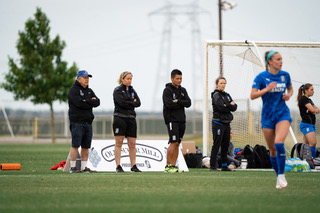
While his coaching experience is impressive, he spoke with Women’s Premier Soccer League Correspondent Katie Parker about an even more important topic - mental health. Chris is a suicide attempt survivor and a strong advocate for mental health awareness. You can watch the full interview here.
“There's still a lot of stuff that around that time I still don't know exactly what happened, because it was just almost like robotic or autopilot where I wasn't necessarily in control of it,” Chris said.
January 6, 2019 - the day that was almost Chris’ last.
“I couldn't say like I planned it per se, even though the red flags were there. I think things just came to a boil to where it happened. I'm obviously blessed and grateful to be here, to have this conversation, to be on the soccer field, to be around my family.”
Chris was diagnosed with bipolar II disorder when he was 26 years old. On average, there’s an 11-year delay between the onset of mental illness symptoms and treatment, according to the National Alliance on Mental Illness. Chris explained that challenges regarding mental health never came up in conversation. It wasn’t something discussed in his Asian culture and it certainly wasn’t something at the forefront of sports culture.
Chris always thought, “by not talking about it, then I'll be normal…I'll fit in.”
When he was diagnosed with bipolar II disorder, he admitted he didn’t commit to finding the professional help he needed, because, again, it’s not something so-called “normal” people did.
“When I did receive the suggestions of therapy and to go see a psychiatrist and so forth, I was like…It's not normal. I know people talk about [going] to the doctor, but I've never heard any of my friends talk about going to the therapist.”
When he did finally break through the stigma in his own mind and understand the importance of having professional help, finding the right self-care team was a challenge in itself.
“For me, I think the most challenging part was having to tell my story over and over and over. Not so much like the story of what happened January 6, 2019, but where it all built up, my background, my upbringing and all that. And so that part got exhausting.”
He realized that even though it was a process, it was imperative he push forward.
“It's not like going to the doctor and them saying, oh, you're allergic to this, take this one medicine for two weeks and then we'll see how it goes. It's longer than that…and I started realizing that, yeah, I need to put as much energy into this as I need to because by doing so, this is actually the way that I show the people around me who love me, that I love them back - by taking care of myself first.”
There’s a lot of trial and error when it comes to finding a mental wellness plan that works for each person. Chris found a couple of tools that help him relax and breathe: a gratitude journal and running.
“There's a little motto that I've started using - be where your feet are,” Chris said. “Sometimes by looking too far ahead, we don't actually get to enjoy what we're doing right now. And so sometimes I think without knowing it, we're missing the whole idea of enjoying the small victories…Not every day is going to be great, but there's always going to be good in every day.”
Chris made it clear that just because he deals with mental health struggles, it doesn’t make him an expert or qualified to give professional advice. When it comes to his role this season with the Storm, however, there’s something he was told about being an assistant coach that’s always stuck with him: head coaches tell players how to play, assistant coaches help players how to feel.
“The [WPSL] season is fast and furious. However, you still have to enjoy it. We can't get so caught up in all kinds of other things that we lose the reason that we put our cleats on every day.” Chris said. “However, on the same note, reminding players that if they're struggling, if they're facing these challenges - anxiety, depression or other things - soccer will always be there. And it's OK to say I can't do that right now…There's always going to be a season ahead of us, but we're only here once.”
Chris hopes those who aren’t dealing with mental health challenges can remember to be kind and empathetic and to really get to know people. When someone you know seems to be struggling, specific questions like, “how is your mental health?” are okay to ask. After that, just be supportive.
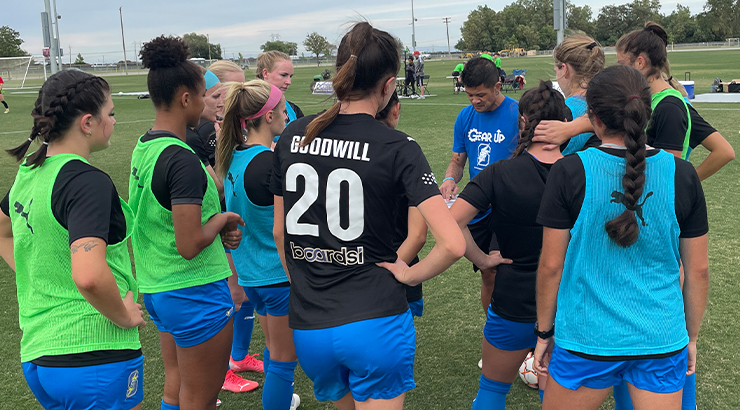
He wants those struggling to know, “they're not by themselves, they're not alone, that they're needed, they’re loved, they’re cared for, that someone needs them here today, tonight, tomorrow, next week.”
Chris has worked with various artists and foundations over the last four years on an annual shirt for Mental Health Awareness Month in May. This year’s design featured a brain dribbling a soccer ball with the words, "Mental Health Matters." The shirt was available through May 31 and 100% of the proceeds went to the Jordan Porco Foundation, which focuses on peer-to-peer education and suicide prevention.
The foundation was founded in 2011 and is named after Jordan Porco, who died of suicide while in college. To help support their mission of preventing suicide in the high school, college, and college entry student population, you can donate directly to the foundation through their website.
Chris’ journey from playing soccer as a kid, to getting cut from his college team, to coaching professionally, to becoming a suicide attempt survivor and now a strong mental health awareness advocate is all covered in the full-length interview you can watch or listen to here.
Chris’ overall message to the players in the WPSL is to “take care of yourself. As an individual and just be a good teammate, a good person, in the locker room so that everybody feels welcome. I think what we need more of, especially today, is to allow people to feel part of it. To feel that they belong in the group as well.”
1 in 5 Americans lives with some sort of mental health challenge. According to the National Alliance on Mental Health, the suicide rate has increased 35% since 1999.
If you or someone you know is in crisis, text MHA to 741741 to reach a trained Crisis Counselor 24/7 or call 1-800- 273-8255 to reach a local crisis center through the National Suicide Prevention Lifeline.
Starting July 16, 2022, the National Suicide Prevention Lifeline will be available for mental health or emotional crisis situations by calling 988. It’s free and confidential and will be staffed by trained crisis counselors 24/7, 365 days a year.
You can also take a mental health test anonymously at mhascreening.org. While it is not a diagnostic tool, the results can help you begin the conversation and journey to getting support.
 WPSL
WPSL 865 Alliance
865 Alliance AGC Football
AGC Football AHFC Royals
AHFC Royals Albany Rush
Albany Rush ALBION San Diego
ALBION San Diego Alexandria Reds
Alexandria Reds Ambassadors Cleveland
Ambassadors Cleveland Arizona Arsenal Soccer Club
Arizona Arsenal Soccer Club Arlington Soccer Blue
Arlington Soccer Blue Arlington Soccer Red
Arlington Soccer Red Atlanta Fire United
Atlanta Fire United Austin Rise FC
Austin Rise FC Bat Country FC
Bat Country FC Baton Rouge United
Baton Rouge United Bavarian United SC
Bavarian United SC BC United
BC United Beach Futbol Club
Beach Futbol Club Beadling Soccer Club
Beadling Soccer Club Brooklyn City F.C.
Brooklyn City F.C. Broomfield Burn
Broomfield Burn California Storm
California Storm Cape Coral Cyclones
Cape Coral Cyclones Carolina FC
Carolina FC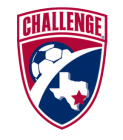 Challenge Red Devils
Challenge Red Devils Charlotte Eagles
Charlotte Eagles Chattanooga FC
Chattanooga FC Chicago House AC
Chicago House AC Chicago KICS Football Club
Chicago KICS Football Club City SC Utah
City SC Utah Clarkstown Soccer Club
Clarkstown Soccer Club Classics Elite SA
Classics Elite SA Cleveland Ambassadors
Cleveland Ambassadors Colorado Blizzard FC
Colorado Blizzard FC Colorado Pride
Colorado Pride Columbus Eagles FC
Columbus Eagles FC Corinthians FC of San Antonio
Corinthians FC of San Antonio Corktown WFC
Corktown WFC Dade County Football Club
Dade County Football Club Dakota Fusion FC
Dakota Fusion FC Dayton Dutch Lions FC
Dayton Dutch Lions FC DECATUR FC
DECATUR FC Delaware Ospreys
Delaware Ospreys Desert Dreams F.C.
Desert Dreams F.C. DKSC BADTOP
DKSC BADTOP Downtown United Soccer Club
Downtown United Soccer Club El Paso Surf
El Paso Surf Erie FC
Erie FC FC Birmingham
FC Birmingham  FC Dallas Women
FC Dallas Women FC Davis
FC Davis FC Dayton
FC Dayton FC Milwaukee Torrent
FC Milwaukee Torrent FC Monmouth
FC Monmouth FC Nashville Wolves
FC Nashville Wolves FC Premier
FC Premier  FC Pride
FC Pride FC PrimeTime
FC PrimeTime FC Spirit
FC Spirit FC Surge
FC Surge FC Tucson
FC Tucson FC Wichita
FC Wichita Fever SC
Fever SC Florida Gulf Coast Dutch Lions FC
Florida Gulf Coast Dutch Lions FC Florida Krush
Florida Krush Florida Premier FC
Florida Premier FC Florida Roots
Florida Roots Force FC New York
Force FC New York Fort Worth Vaqueras
Fort Worth Vaqueras Fresno Freeze FC
Fresno Freeze FC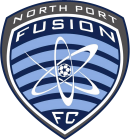 Fusion FC
Fusion FC Futbolera Select
Futbolera Select Georgia Impact
Georgia Impact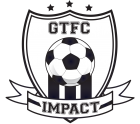 Greater Toledo Futbol Club
Greater Toledo Futbol Club Green Bay Glory
Green Bay Glory Griffins FC
Griffins FC Gulf Coast United
Gulf Coast United Hattiesburg FC
Hattiesburg FC Hershey FC
Hershey FC HEX FC Tempest
HEX FC Tempest Indios Denver FC
Indios Denver FC Internationals SC
Internationals SC Iowa Raptors FC
Iowa Raptors FC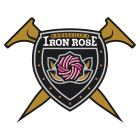 Iron Rose FC
Iron Rose FC Jackson Ignite
Jackson Ignite Jacksonville Armada FC
Jacksonville Armada FC Joy AC
Joy AC Junction FC
Junction FC Kansas City Current II
Kansas City Current II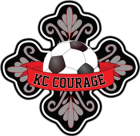 KC Courage
KC Courage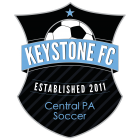 Keystone FC
Keystone FC  Kingston Capitals
Kingston Capitals LA Krewe Rush
LA Krewe Rush La Roca FC
La Roca FC LA Surf Soccer Club
LA Surf Soccer Club Lamorinda United
Lamorinda United Lonestar SC
Lonestar SC Lou Fusz Athletic
Lou Fusz Athletic LVU Rush
LVU Rush Manitou F.C.
Manitou F.C. Mankato United Soccer Club
Mankato United Soccer Club McLean Soccer
McLean Soccer Merrimack Valley Hawks FC
Merrimack Valley Hawks FC MetaSport FC
MetaSport FC Midwest Select SA Muskrats
Midwest Select SA Muskrats Milwaukee City AFC
Milwaukee City AFC Minnesota Dutch Lions FC
Minnesota Dutch Lions FC Minnesota Thunder
Minnesota Thunder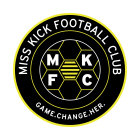 MISS KICK FC
MISS KICK FC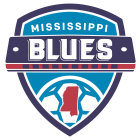 Mississippi Blues SC
Mississippi Blues SC Missouri Reign
Missouri Reign MN Bliss FC
MN Bliss FC Napa Valley 1839 FC
Napa Valley 1839 FC Nashville Rhythm FC
Nashville Rhythm FC NCFC
NCFC Neuse River Futbol Alliance
Neuse River Futbol Alliance Nevada Futbol Club
Nevada Futbol Club New York Athletic Club
New York Athletic Club New York Dutch Lions FC
New York Dutch Lions FC New York Shockers
New York Shockers Niagara 1812
Niagara 1812 NJ Wizards SC
NJ Wizards SC  Northern Colorado Rain FC
Northern Colorado Rain FC Northern Utah United
Northern Utah United Oklahoma City FC
Oklahoma City FC PA Classics
PA Classics Penn Fusion SA
Penn Fusion SA Pensacola FC
Pensacola FC Pensacola FC Academy
Pensacola FC Academy Peoria City
Peoria City Philadelphia Ukrainian Nationals - Liberty
Philadelphia Ukrainian Nationals - Liberty PHX Heat FC
PHX Heat FC Port City FC
Port City FC Portland Thorns FC II
Portland Thorns FC II PSD Academy
PSD Academy Quad Cities Rush
Quad Cities Rush Reading United A.C.
Reading United A.C. Real Central NJ
Real Central NJ Rebels Soccer Club
Rebels Soccer Club RI Rogues FC
RI Rogues FC Rochester New York FC
Rochester New York FC Royals AZ
Royals AZ RSL Southern Arizona
RSL Southern Arizona  Saint Louis Scott Gallagher SC
Saint Louis Scott Gallagher SC Salvo SC
Salvo SC San Antonio Runners
San Antonio Runners San Diego Dons
San Diego Dons San Diego Parceiro
San Diego Parceiro 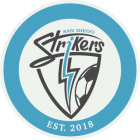 San Diego Strikers
San Diego Strikers San Diego Surf
San Diego Surf San Francisco Elite Soccer Club
San Francisco Elite Soccer Club San Francisco Nighthawks
San Francisco Nighthawks San Ramon FC
San Ramon FC SC del Sol
SC del Sol Seattle Reign FC II
Seattle Reign FC II Seminole Ice
Seminole Ice Shreveport United
Shreveport United Side FC 92
Side FC 92 Sioux Falls City FC
Sioux Falls City FC SJEB FC
SJEB FC So Cal Union FC
So Cal Union FC SoCal Dutch Lions FC
SoCal Dutch Lions FC Soda City FC
Soda City FC Southern California Eagles
Southern California Eagles SouthStar FC
SouthStar FC Spokane SC Shadow
Spokane SC Shadow Sporting CT
Sporting CT St. Croix Legacy
St. Croix Legacy STA
STA  Sunflower State FC
Sunflower State FC SUSA FC
SUSA FC The Town FC
The Town FC TLH Reckoning
TLH Reckoning TN Tempo FC
TN Tempo FC UFA Gunners
UFA Gunners UK F.C.
UK F.C. Union 10 FC
Union 10 FC Union KC
Union KC United Soccer Alliance
United Soccer Alliance Utah Avalanche
Utah Avalanche Utah Surf
Utah Surf  Vancouver Victory FC
Vancouver Victory FC Washington Dutch Lions FC
Washington Dutch Lions FC West Florida Flames
West Florida Flames West-Mont United
West-Mont United Westside Metros FC
Westside Metros FC Women's Football Club of Charlotte
Women's Football Club of Charlotte Women's Premier Soccer League 2
Women's Premier Soccer League 2
